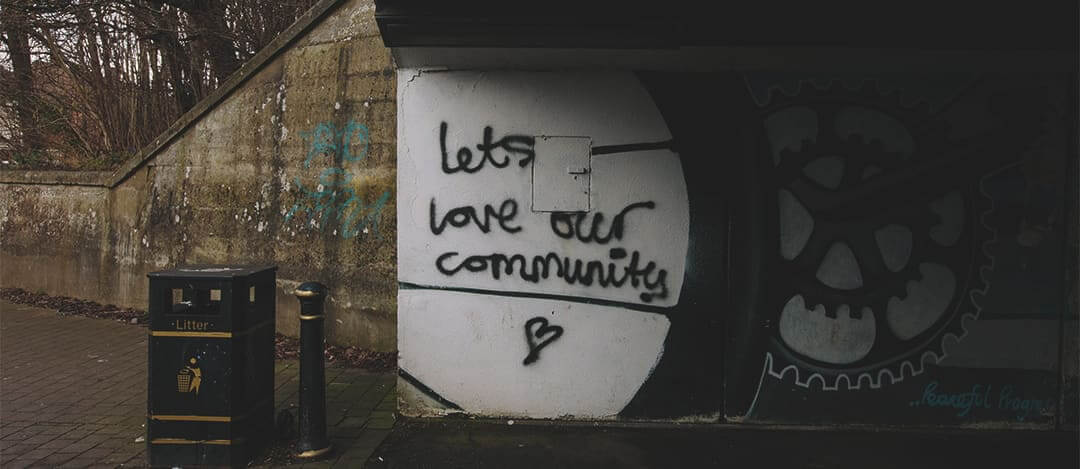Is your church looking for ways to reach out and engage your community? Community engagement is a huge need and opportunity for the local church.
In our nation’s history, churches used to be viewed as pillars in their towns. They were often physically located at the center of town, and led in establishing hospitals, schools, and homeless shelters.
By contrast today, churches are often viewed with mistrust and suspicion. Rather than a benefit to society, they might be considered judgmental, hypocritical, and at worse, dangerous.
How can your church change that perception and better engage your community?
- Be Curious about the Physical Needs and Resources in your Community
- Engage your Personal Network
- Be Present and Visible in the Community
- Build Reciprocal Relationships within the Community

Be Curious about the Physical Needs and Resources in your Community
To gain trust and engage your community, you should know and address both physical and spiritual needs. Get curious!
Do you know the top issues in your community that need addressing? If not, contact or visit local agencies and ask what they are seeing. Request ways your church can help – by client referrals, through volunteer service, or by giving.
Talk to law enforcement officials about the community problems they encounter and ask about ways your church can help address them. Maybe hosting an after-school tutoring program, organizing sports in at-risk communities, getting started in legal ministry, or providing debt counseling could make a difference!
But don’t just listen to people in your community to learn their needs. Find out what resources and gifts are already present within the neighborhood. The goal should always be to seek justice with the community and not just for the community.
Ask, listen, and plan. Your efforts to partner with others in your neighborhood to address both physical and spiritual needs will build bridges in your community.
Engage your Personal Network
Each person in your church has a network of friends, co-workers, and neighbors. As your church addresses needs in your community, let your network know and invite them to learn more. If your church is hosting a Gospel Justice Center to provide legal aid, they can help refer clients to your center – or come as a client.
Word-of-mouth is the number one source of clients for our justice centers – personal networks are critical to engage as your church reaches out to your community. Because your network knows and trusts you, they will be more likely to trust a ministry you talk about. Whether you’re hosting a food pantry, clothing drive, or legal clinic, your network is the perfect place to start for referrals and to strengthen your community engagement.
Be Present and Visible in the Community
Every community has public events. Show up. Be present at small and big events that groups of people in your community will attend. Be familiar, not as a building, but as a people.
Get to know the neighbors living in your community. Let them know how your church is caring for the needs of neighbors by hosting a booth at the event. Invite families to your sports outreach or tutoring program. Provide referral cards to your legal ministry so they can spread the word. Gain trust by being physically present and involved, and you will engage your community.
Build Reciprocal Relationships in the Community
As you get to know the needs and people in your community, you will also learn the agencies providing social services. From local food pantries and medical clinics to crisis counseling and addiction support networks, your church can meet the people leading these agencies and learn the best way to refer people to them. As you learn about their organization, it will be natural for them to learn about the services your church provides and how they can refer potential clients to you.
By connecting with local government agencies, one of our Justice Champions was recently invited to attend their City Council meeting and share about the need for civil legal aid and how their church was meeting that need. Their church is engaging their community in deeply meaningful ways.
Over the last 50 years there has been a marked shift from churches seeking biblical justice in their communities to churches leaving community justice issues to the politicians and activists. The result is church outreach programs narrowly focused on spiritual needs, to the neglect of tangible physical needs in the community. God’s word is clear that tolerating injustice is closely tied to idolatry – if we don’t oppose mistreatment of God’s image-bearers, our worship of God will ring false.
The church is called to seek justice for the vulnerable and proclaim the gospel to all.
As you reach out and engage your local community your church will see the fruit of transformed lives and faithful worship. Your church can gain credibility by being curious about the needs of your community, engaging your personal networks, being present at community events, and by deepening relationships with agencies already meeting community needs.







